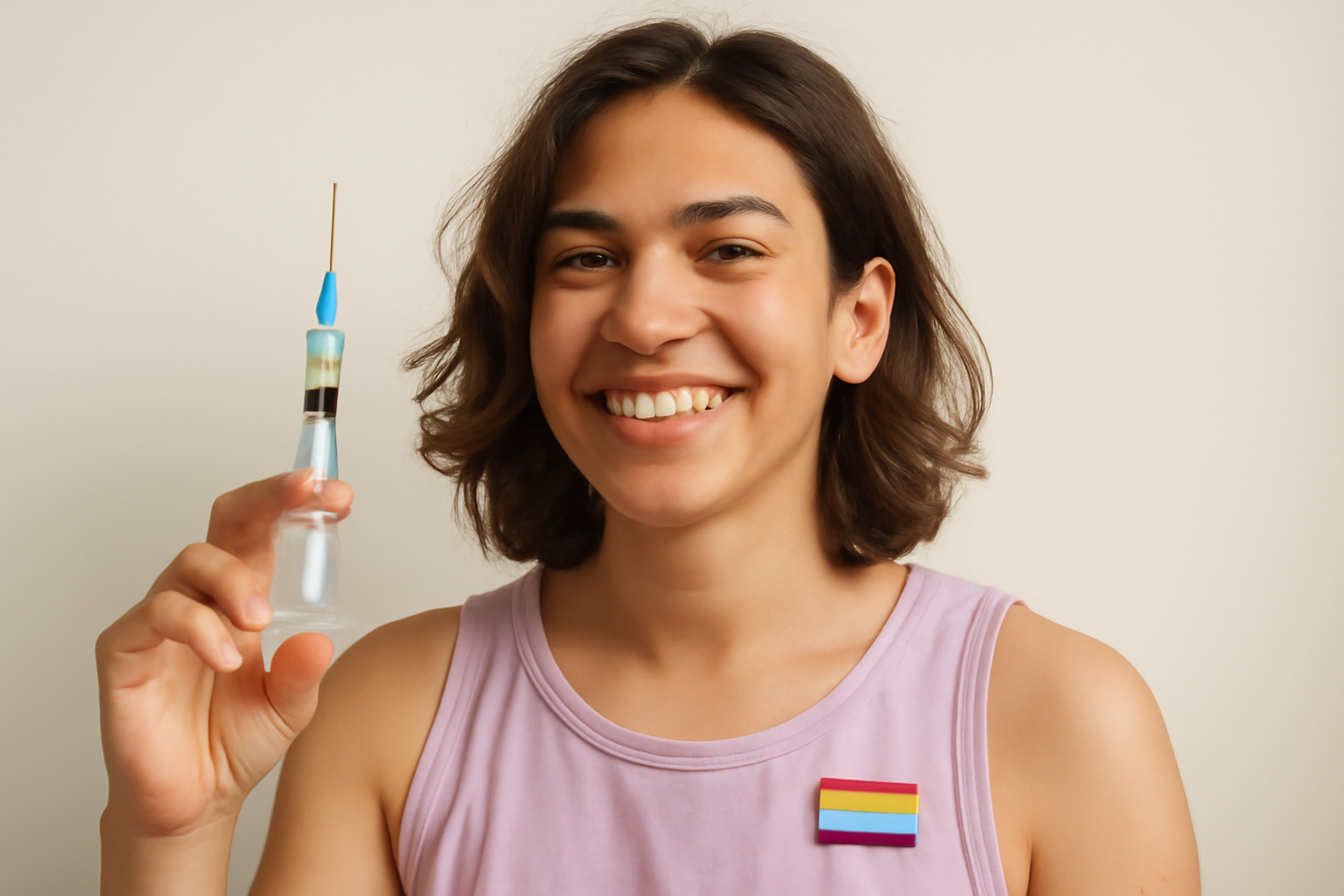
A groundbreaking study has brought to light the positive impact of gender-affirming hormone therapy (GAHT) on mental health, particularly in reducing symptoms of depression among transgender, nonbinary, and gender-diverse (TGD) adults. Conducted on 3,592 TGD patients over a two-year period, the research demonstrated that hormone therapy significantly reduces depressive symptoms, offering hope to a community that experiences depression at much higher rates than their cisgender counterparts.
The study's findings are particularly significant given the challenges faced by TGD individuals. These individuals are disproportionately affected by mental health issues, with depression being notably prevalent. The recent political climate has also seen attacks on gender-affirming healthcare, labeling it as "junk science," despite evidence to the contrary. This research, therefore, stands as a testament to the validity and necessity of GAHT in improving the well-being of TGD individuals.
Significant Findings from the Study
Participants in the study ranged in age from 18 to over 51 years old and received primary care from two major healthcare centers: Fenway Health Institute in Boston, Massachusetts, and the Callen-Lorde Community Health Center in New York City. During the study period from 2016 to 2019, these centers provided a comprehensive primary care approach that integrated hormone therapy, emphasizing accessibility and low-barrier options for gender-diverse patients.
The research revealed that 15.3% of the TGD patients had moderate-to-severe depressive symptoms. Notably, those who underwent GAHT were found to have a 15% reduced risk of experiencing depressive symptoms over a two-week period compared to those who did not receive GAHT. This underscores the potential of hormone therapy to alleviate mental health challenges in the TGD population.
According to the study, the mechanisms through which GAHT improves depressive symptoms are likely biopsychosocial in nature. These include physiological changes in hormone levels, reduced gender dysphoria, and increased gender congruence, all of which contribute to enhanced social functioning. The integration of hormone therapy into primary healthcare further supports these positive outcomes.
Demographic Insights and Broader Implications
The study provided a detailed demographic breakdown of its participants, offering insights into how various factors intersect with mental health outcomes. The sample was diverse, with 63.1% identifying as white, 16.1% as Hispanic/Latinx, 11.7% as Black, and 6.8% as multiracial. Furthermore, 35.4% identified as trans women, 32.6% as trans men, and 18.9% as nonbinary individuals. The economic status of participants was also considered, with 52.1% living below the federal poverty level and varying levels of insurance coverage.
Interestingly, the study found that trans women and nonbinary patients assigned female at birth had a higher risk of depressive symptoms compared to trans men. This highlights the need for tailored mental health interventions that consider the unique experiences of different subgroups within the TGD community.
While the study primarily focused on the impact of GAHT, it also acknowledged limitations. It did not account for other forms of gender-affirming medical care, the use of antidepressants, or external factors influencing depression. Despite these limitations, the study advocates for universal screening for depression among TGD individuals, with systems in place for diagnosis, treatment, and follow-up care.
Challenges to Gender-Affirming Care
The study's publication comes at a time when gender-affirming care is under scrutiny and attack by political forces. An executive order has been issued, aimed at cutting federal funding for medical institutions that research or provide gender-affirming care. This order dismisses scientific studies supporting such care, branding them as "junk science." In response, the Department of Health and Human Services is expected to produce a report on alternative approaches to treating gender dysphoria in minors, echoing the contentious Cass Review in the UK.
The nine researchers involved in this study, several of whom are trans or nonbinary themselves, are affiliated with prestigious institutions such as Harvard Medical School's Fenway Institute and the University of California, San Francisco's Gender Affirming Health Program. Their work stands as a crucial counterpoint to the current anti-trans narrative, challenging biases and advocating for evidence-based healthcare practices.
In conclusion, this study not only highlights the mental health benefits of hormone therapy for TGD individuals but also underscores the importance of accessible, integrated, and affirming healthcare. As political and social debates continue, such research is vital in advocating for the rights and well-being of the transgender and nonbinary community.
Related Posts
Triumphant Trans Woman Wins Legal Battle and Inspires Others to Stand Up for Their Rights
Breaking new ground: a landmark victory in transgender rights After battling in courtrooms and enduring endless challenges, Diana Portillo, a transgender woman, has secured a monumental victory in her decade-long fight against workplace discrimination. The result? Nearly $1 million awarded in a historic settlement. But this isn't just a win on paper—it represents a powerful precedent in combati [...]
Pride Month in Latin America: Protests and Demands for Equality
**Celebrating Pride and advocating LGBTQ+ rights in Latin America** Pride Month in Latin America was a lively mix where celebration met activism. Communities united, not just throwing a party but making a stand—demanding equality and pushing governments toward better protection and rights recognition. Throughout Latin America, pride events erupted in marches and cultural displays, each with a c [...]
Transgender Erasure Actions Implemented by National Park Service
```html Trump administration's impact on national park service and transgender recognition The Trump administration made notable moves in undermining transgender representation, which included directing agencies like National Park Service not include "T" and "Q" when they refered “LGBTQ” in any official communication. This move seems part a broader plan by this administration aimed at reducin [...]